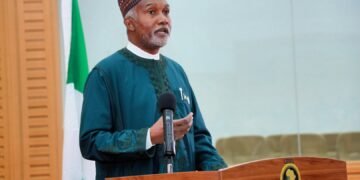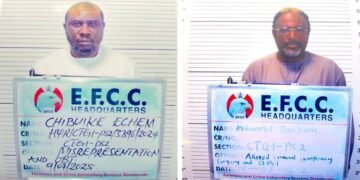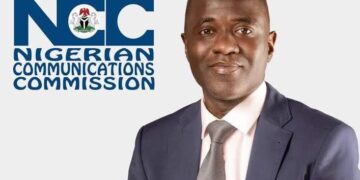Nigerian intelligence has been credited with the arrest of Muslim Muhammad Yusuf, the son of Boko Haram’s founder, in Chad — a breakthrough analysts say underscores the effectiveness of improved intelligence gathering and coordination under the office of the National Security Adviser.
Security analyst Audu Bulama Bukarti confirmed the development after an investigation into the identity of the suspect. “My investigation has confirmed that Muslim Muhammad Yusuf, recently arrested in Chad, is the son of Boko Haram’s founder,” Bukarti told reporters.
According to him, Muslim was leading an ISWAP cell when he was captured alongside five others. His resemblance to the late Muhammad Yusuf initially raised suspicion, but further checks with family acquaintances and relatives confirmed his identity. “One close family friend was emphatic: ‘Yes, he is his son. He was two or three when they launched their insurgency. He is the son of Bintu, Muhammad Yusuf’s first and eldest wife.’ His uncles also confirmed it,” Bukarti explained.
Chadian authorities reportedly acted on a Nigerian intelligence tip-off to make the arrest. Bukarti noted that the timeline of Boko Haram’s insurgency and the suspect’s age matched reports from Chad, further sealing the case.
The arrest comes only days after Nigerian security forces announced the capture of two top leaders of Ansaru—a Boko Haram offshoot linked to al-Qaeda—as well as the head of the Mahmuda group, which has been unleashing terror in parts of the North Central.
Bukarti described the string of arrests as a “turning point” in Nigeria’s counterterrorism efforts. “For the first time, the head of a major terrorist faction has been taken alive. That is no small feat. Nigerian intelligence deserves credit,” he said.
He attributed the success to the renewed push for inter-agency coordination and intelligence-sharing led by the National Security Adviser (NSA), noting that the improved strategy has produced tangible results in recent weeks.
However, Bukarti cautioned against complacency. “The same energy must now be turned on the bandit warlords ravaging the North West and North Central. They, not Boko Haram, are today’s biggest threat to lives and livelihoods. Taking down their leaders—by arrest or elimination—will cripple their networks, prove that the Tinubu administration means business and begin to restore public confidence in the state’s ability to protect its citizens,” he added.

































